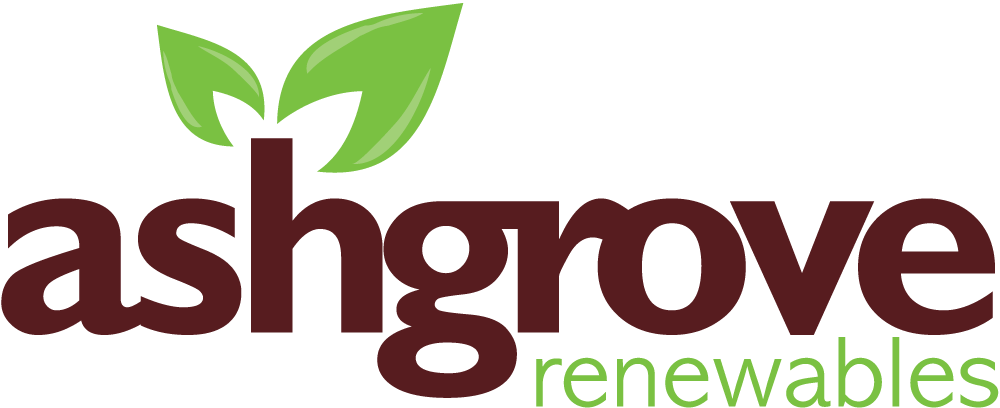Choosing Solar PV for your house can be a smart investment that can provide a range of benefits, including cost savings, increased home value, and reduced carbon footprint.
Ashgrove Renewables carry out FREE seminars on Solar PV that cover the benefits, options, savings, grants, design and installation process.
Why Solar?

Reduce
Energy Bills
Solar PV panels can generate electricity that you can use in your home, which can help reduce your dependence on grid electricity and lower your energy bills.

SEAI
Grants
The SEAI Grant offers up to €2,100 for installing Solar PV systems. All homeowners, including private landlords, whose homes were built and occupied before 2021 can apply.

Reduce Carbon Footprint
Solar PV systems generate clean electricity without producing any harmful emissions, helping to reduce your carbon footprint and contributing to a more sustainable future.

Energy
Security
By generating your own electricity, you can increase your energy security and reduce your reliance on grid electricity.

Export Excess Electricity
Excess electricity produced can be sent back to the grid. This means that homeowners can receive credit for any excess electricity they generate, which can help offset their energy bills.
0% VAT on
Solar Panels
Since May 1st 2023, the zero vat rate applies to the supply and installation of Solar PV Systems. It is estimated this will reduce the average cost of a Solar PV installation by €1,300.
How Does Solar Work?
Solar PV works by converting sunlight into electricity that can be used in homes. Here’s how it works:
1. Solar Panels
Solar PV (Photovoltaic) panels are devices that convert sunlight directly into electricity. They are made up of small, interconnected solar cells that capture the energy from the sun and transform it into usable electricity.
2. Inverter
Solar inverters convert the direct current (DC) power generated by your solar panels into alternating current (AC). There are two main types of inverters, string and hybrid
3. Energy Storage
Combining your solar panels with a battery offers much more control over your energy consumption and allows you to store your solar energy for use in the evenings or to power your electric vehicle.
4. EV Charger
Using 100% green energy generated from your own home Solar PV system, you can power up your electric car without any impact on the environment. SEAI Grants of €600 available for EV Charger installation.
5. Hot Water Diverter
A Hot water diverter helps you to make the most of your self-generated power rather than exporting it back to the grid. The extra power generation is instead diverted back to your heating and hot water system, heating the water on 100% self-generated green energy.
6. Surplus Electricity
Since July 2022, Irish homeowners have been eligible to sell their surplus solar electricity to the grid. Prices for exported electricity are negotiated between electricity suppliers and consumers.
Why Ashgrove Renewables?

Experience
Ashgrove Renewables, est. 2001, has a team of highly experienced professionals who are experts in the Solar PV industry. They can provide valuable insights and advice on the best Solar PV solutions for your specific needs.

Bespoke Design
We design and install Solar PV systems that are tailored to your specific energy needs and budget. We can also integrate the system with your existing electrical infrastructure, ensuring a seamless installation process.

Responsible Aftersales
We are known for our excellent customer service, offering ongoing support and maintenance of Solar PV systems. We also provide a comprehensive warranty on all their installations.

Quality
High quality products, professionally installed with excellent processes and procedures ensure a high quality system.

Easy Process
We will provide budget quotations within 24 hours.

Quick Installation
Solar PV systems can be installed in as little as 4-6 weeks. Contact Ashgrove Renewables today
Is Your Home Draining Your Wallet? It’s Time To Make A Change
Ready to get started? The next step is to attend one of our Weekly Webinars. We’ll explain the entire process, cover the pros and cons of upgrading your home, walk you through the grants that are available, and answer any questions you may have.
Click here to see
our Webinar Schedule
Frequently Asked Questions
These are some of our frequently asked questions, if you can’t find the answer to what you’re looking for, please sign up to one of our webinars to learn more!
Do solar panels work in Ireland?
Yes, solar PV systems will continue to produce electricity in daylight therefore will continue to work in Ireland on overcast days. On these days however they won’t be able to produce power at their maximum rated capacity, rather at some fraction of this figure. Since solar panels work best in direct sunshine, solar PV systems in Ireland often produce less energy than those in other, sunnier nations like Spain.
How much do solar panels cost?
A number of variables such as hardware selected, system size, accessibility of the roof or site and installation affect the price of a solar PV system. Generally speaking, the cost of a home PV system should be between €1,500 – €2,000 per kW installed (excluding VAT), however pricing varies depending on the variables mentioned above.
What about a battery storage system?
By including a battery in your solar PV system, you can charge the battery when the PV system is producing electricity that isn’t being used and discharge it when you do, typically that evening or night. The amount of solar PV electricity you use in your home can be increased with a battery. Adding a battery to the system will increase the cost of the PV system and some energy will be lost in the charge and discharge cycle.
How much electricity will solar panels generate?
A number of variables such as the type of hardware selected, system size, location and the angle in which the panels are installed have an impact on how much electricity is produced annually. On a clear, sunny day, 1 sq m of the most common silicon solar panels will normally produce 150W of power (enough to operate a laptop). If well-located, a 20 sq m (3kW) home solar PV system would produce about 2,600kWh of electricity annually, or more than 40% of the normal annual electricity usage of an Irish home.
What size solar PV system do I need for my home?
The size of the solar PV system you need will depend on several factors, such as your energy usage, the size of your home, and the available space for solar panels.
What is Solar PV?
Solar PV stands for “photovoltaic,” which refers to the technology used to convert sunlight into electricity. Solar PV systems use solar panels, which are made up of photovoltaic cells that capture the energy in sunlight and convert it into direct current (DC) electricity. This electricity can then be used in homes.
How long does it take to install a solar PV system?
The installation time for a solar PV system can vary depending on several factors, such as the size of the system and the complexity of the installation. However, most installations take between 1-3 days.
How much money can I save by installing a solar PV system?
The amount of money you can save by installing a solar PV system will depend on several factors, such as your energy usage and the size of the system. However, solar PV systems can help reduce your energy bills and increase the value of your home, potentially providing long-term cost savings.
How long will my Solar power system last?
Solar PV systems typically last for 25-30 years or more, making them a long-term investment for homeowners. The lifespan of a solar PV system can depend on several factors, such as the quality of the equipment used, the installation process, and the level of maintenance and care over time.
While solar panels are designed to withstand harsh weather conditions and require very little maintenance, it’s still important to have them inspected and maintained regularly to ensure maximum efficiency and longevity.
It’s worth noting that while the actual solar panels may last for 25-30 years or more, other components of the system, such as the inverter, may need to be replaced sooner. However, with proper maintenance and care, a solar PV system can provide homeowners in Ireland with a reliable source of clean, renewable energy for many years to come.
Common Myths about Solar PV
These are some frequent Solar PV misconceptions we hear, if you can’t find the answer to what you’re looking for, please sign up to one of our webinars to learn more!
Solar Panels Don’t Work When It’s Cloudy
Solar panels will very rarely stop generating during cloudy weather and the reason is quite simple – clouds don’t completely block sunlight, otherwise it would be completely dark outside during bad weather. During ‘normal’ cloudy weather the amount of solar generation is typically reduced by 60 to 80%, depending on the time of day and time of year. Summer is obviously much better than winter.
Solar PV is unreliable and doesn't work at night
While it’s true that solar panels generate electricity best when the sun is shining, there are several ways to store excess electricity generated during the day for use at night. For example, some solar PV systems use battery storage to store excess electricity for use when the sun isn’t shining.
Installing a solar PV system is complicated and time-consuming
While installing a solar PV system does require some planning and preparation, the actual installation process is generally quite straightforward and can be completed in 1-3 days.
Solar PV requires a lot of maintenance
While it’s true that solar PV systems require some maintenance, they are generally very low-maintenance compared to other types of renewable energy systems. Solar panels have no moving parts and are designed to withstand harsh weather conditions, so they require very little maintenance other than regular cleaning.




 Splash
Splash